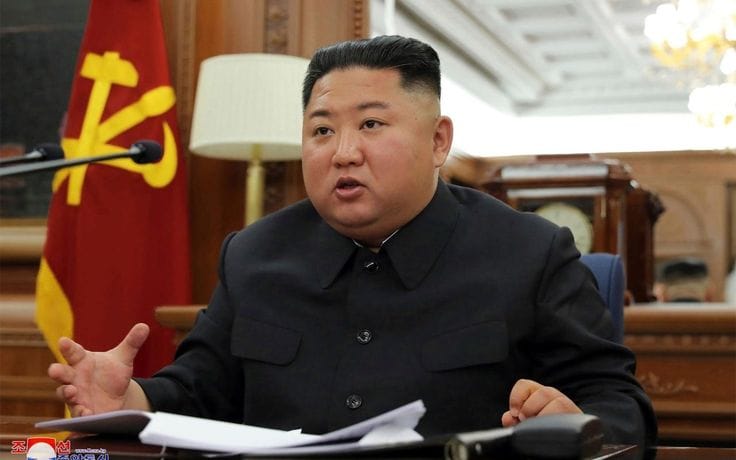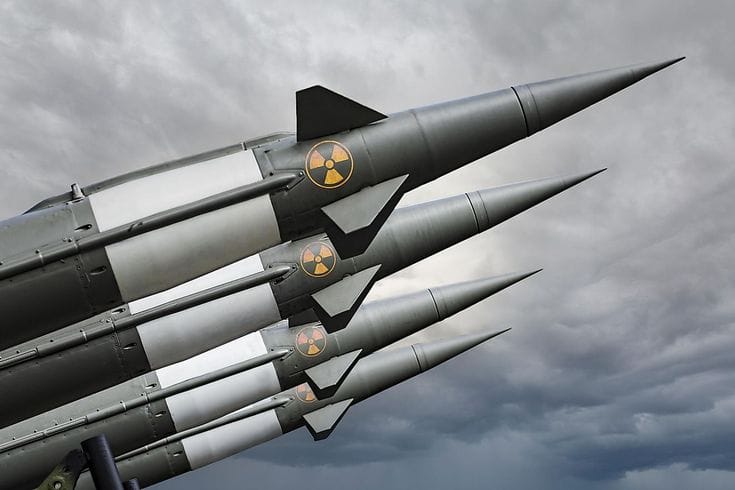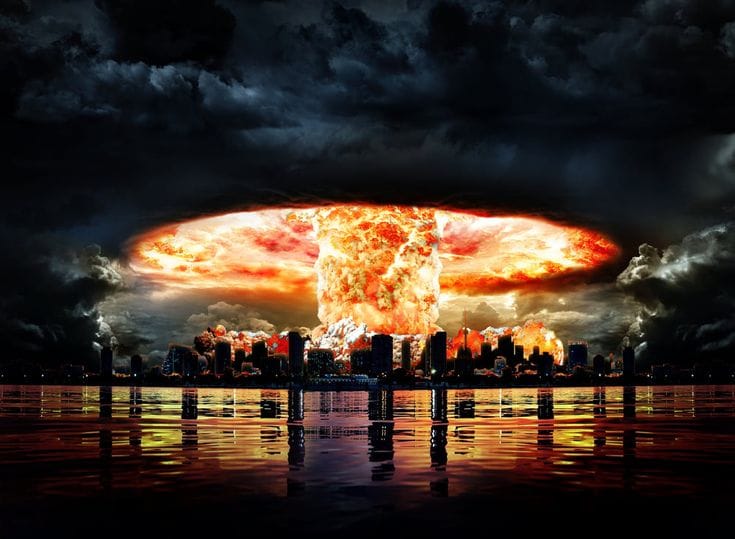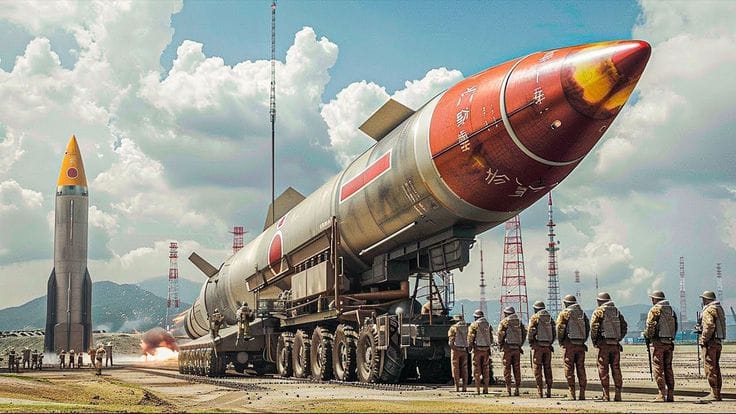The Nuclear Threat Hanging over South Korea and International Relations .
Nuclear Attack :- The nuclear threat has been hanging over international diplomacy for ages. While great powers had, for a long time, structured their own affairs – indeed, all the great powers of the world, with the likes of United States, Russia, China, Israel, and Iran – were emerging as power centers, South Korea was to suddenly be at the forefront as a challenger in this drive. South Korea: first of all, wonderful economy, highly technologically developed society, to dominate pop culture; nuclear power-this is a surprise to them all.
However, news reports are already beginning to predict as if this country threatened to use nuclear weapons and even referred to the situation as “destroying the world.” The seriousness of such a declaration makes one really wonder how weak our contemporary global political stage is-that actual or potential nuclear threats could have seriously harsh global repercussions.
A New Voice in the Nuclear Arena
Nuclear conflict has never been on the top discussion lists for South Korea as it is not an announced nuclear state. South Korea undertook not to develop nuclear weapons under the Nuclear Non-Proliferation Treaty. Its northern neighbour North Korea has been defying NPT openly by developing and testing nuclear weapons, keeping the whole region on red alert all the time. South Korea has relied on the military alliance with the United States and the United States strategy of extended nuclear deterrence to keep this country safe from the potentialities of attacks within the perpetuating nuclear shadow of that country.
However, as the tensions in this region are increasing and North Korea possesses nuclear bombs, this demand for an independent deterrence started looking for voices in South Korea. The increasable critique is rising on this reliance of America for her security, whether the nuclear shield of America would be reliable when the argument is likely to erupt elsewhere, such as China or Russia.
Change in Rhetorical Level
Such a threat by South Korea, as reported is to “burn down the world” by nuclear attack coming from the entire area – an altogether radical departure of its traditional diplomatic posturing. Whether said statements are true or otherwise remain as yet still under question, but such a threat by mere mention already raises concerns over the changing dynamics across global nuclear diplomacy. This is in policy parlance, or rather, South Korea feeling cornered, running out of options, and thus being compelled to think of a nuclear option if things went worse further.
This change in tone also talks of a larger regional arms race. In fact, he has long argued that his nation needs to keep building up their nuclear strength, but by keeping a steady barrage of missile tests and belligerent threats against South Korea and the United States, South Korea has met this provocation with strengthening conventional military power but matched words also with expressions about how they, too, might play with nuclear power if necessary. At the very moment when tensions rise in this region of East Asia, this new threat forces China and Japan into reconsideration of their strategic positions.
Implications for South Korean Nuclear Credibility

International security environment as a whole will significantly be impacted by South Korean nuclear credibility. Because the economy of South Korean is one of the biggest worldwide and it has dominated the topmost positions across the globe in the wake of technology as well as manufacturing aspects, any crisis that involves South Korea will immediately strike the world around it. Heavy damages would be made in the supply chains of the tech industry. South Korea is one of the biggest manufacturers of semiconductors, smartphones, and all other consumer electronics. This nuclear war export would severely cripple industries everywhere in this world.
It would also incur diplomatic costs. South Korea is being threatened with going nuclear as it were, it might reconsider its relations with its major allies-first and foremost the United States and other Western powers. For a long time, the world has been in favor of South Korea’s peaceable democracy under a threat of its northern neighbor. The risk of South Korea going nuclear may be the end of alliances and an arising international rift.
Already a major regional power, it would certainly regard a nucleararmed South Korea as a dire threat to its own strategic interests. And since Japan has little alternative but to repudiate its current nonnuclear status as well, the development very quickly threatens to become a perilous arms race in East Asia. It will upset the already unstable balance of power in the region, and will directly pit the great powers of the world against one another.
Threat to Global Security

The mention of South Korea-an ostensibly capable country to conduct a nuclear strike, however whimsical and rhetorical it may seem-is in itself an indicator of the gullible nature of global security. Since the first nuclear bomb was dropped in 1945, the world has lived in the shadow of that marvel of science. The post-Cold War world has, for the most part, been a stable order regarding the order surrounding nuclear weapons-the regime of detente. That order is now beginning to fray at the edges.
The question of nuclear capability in the Middle East pitches Israel and Iran as the center of contention. While Israel remains undeclared, its nuclear capability has widely been known to exist. Not so Iran where allegations surrounding peaceful nuclear ambitions abounded, despite the latter’s claims and declarations of peaceful intent. Any escalating tussle between these two could quite easily precipitate a regional and possibly global nuclear crisis.
This is the biggest headache: that such tensions are relentlessly unpredictable. Nuclear weapons are no longer the prerogative of superpowers alone. Small states, regional players, and even non-state actors have entered this risk-raising equation. The world is witnessing, on one hand, nations queueing up for acquiring or pursuing nuclear weapons and, on the other hand, the possibility of such mistakes, accidents, or deliberate misuse is growing with each passing day.
Diplomacy Back on Agenda

If the reported threat by South Korea was not to be spread further, then the international community has to get back to its original role of being diplomatic and dialogue-prone. Sanctions, negotiations, and security guarantees have been tools designed always to prevent nuclear proliferation; and they must be used much more effectively now. It being a responsible member of the international community, South Korea must be told to reiterate its commitment to non-proliferation. Legitimate security concerns because of the expansion in North Korea’s nuclear capability make the international community to be concerned at the same time.
Every nuclear war threat sends cold shivers to our spines as it reminds us of cataclysmic consequences in case such an action is performed. One nuclear detonation, to mention nothing about global nuclear war, will be so catastrophic that, so to speak, no one would ever have a chance to see the like of this again. Since the world has gone too far in keeping people stable and peaceful, we can’t afford having this existential threat rising up into the world.
It leaves to emerge as a possible nuclear player in the unravelling international landscape-an added complication on what already is dangerous. Even if the boastful claims are not yet proven to have merits, still this acts as a stiff reminder of the fact that once a genie is released from the bottle, action must be taken quickly in speed and decision before the genie goes and plays its destructive havoc again. Know more about tech and international news visit once.

